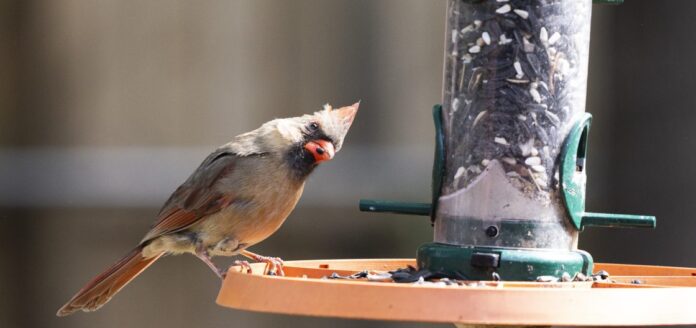AUBURN UNIVERSITY, Ala. – February is among one of the most important months for feeding birds in Alabama, as backyard songbirds have limited access to their favorite foods during the winter. Grab a camera and join the Alabama Cooperative Extension System outdoors to participate in the Great Backyard Bird Count. Alabama Extension is hosting an online photo contest Feb. 16-19. Submit photos taken with a cell phone or camera beginning Friday, Feb. 16. Watch the Alabama Extension Facebook page for more details.
Alabama Extension Urban Regional Agent Roosevelt Robinson said February is National Bird Feeding Month.
“Whether you are an old hand or a rookie, this month is the ideal time for bird feeders, watchers and anyone else in the spirit to extend a hand to help these avian friends,” Robinson said.
Feed the birds
National bird feeding month was established in 1994 to encourage individuals to supplement wild birds’ natural diet during the winter months.
Urban Regional Agent Allyson Shabel said putting out backyard feeders is a great way to help birds during the winter.
“Buying a feeder — if you don’t have one — and keeping it full can attract new birds to your landscape,” Shabel said. “It is important to note that birds may prefer some feeders over others, depending on the food type.”
A Beginner’s Guide to Backyard Bird Feeding from the National Wildlife Federation includes other helpful tips.
Identifying backyard birds
There are several factors to take into account when watching birds in the backyard and beyond.
“Birdwatching can begin in the backyard and eventually move to more interesting or challenging places like wooded lots, open pasture lands and even popular birding destinations like Dauphin Island,” said Lynn Dickinson, a regional forestry and natural resources agent.
Dickinson said the most difficult part of birding is determining which species of bird the birder is observing.
“The first thing to look at is the size and shape of the bird,” Dickinson said.
Other characteristics to note include:
- Color pattern
- Behavior
- Habitat
Learn more about identifying backyard birds in Dickinson’s Extension Brief titled Keys to Successful Bird Identification.
If you build it, they will come
Bluebirds, robins, chickadees, titmice, wrens and purple martins are able to easily adapt to using bird houses. Location makes no difference to these species as long as there is a small patch of suitable habitat.
Learn how to construct a nest box in the Alabama Extension publication, Bird Houses for Songbirds.
The Great Backyard Bird Count
Each year between Feb. 16-19, people come together to observe, count, celebrate and educate themselves about birds through the Great Backyard Bird Count.
Karnita Garner, an urban forestry, wildlife and natural resources Extension specialist, said this popular citizen science project helps researchers learn more about fluctuations in bird populations.
“The Great Backyard Bird Count also helps scientists monitor changes in bird migration and distribution patterns,” Garner said. “Scientists use this information to protect birds, their habitat and the environment.”
Garner said by participating, birdwatchers can increase their environmental stewardship while helping researchers learn more about these splendid creatures.
Alabama Extension is supporting senior citizens as they seek to participate in the Great Backyard Bird Count in Alabama through the Virginia Caples Lifelong Learning Institute. Visit the official Backyard Bird Count webpage to register at www.birdcount.org.
More information
Watch an Eco-Friendly Friday webinar where the Alabama Wildlife Federation focused on backyard birding and participation in the upcoming Great Backyard Bird Count.




















